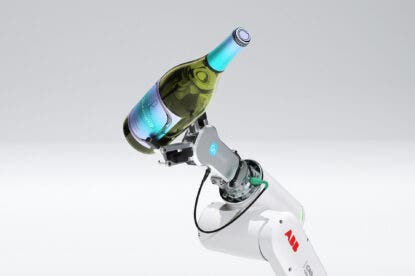Similarities and disconnects between two California crops—grapes ($5 billion annually) and cannabis (an estimated $7 billion annually)—dominated discussions at the Santa Rosa, California Wine & Weed Symposium. More than 400 people attended Thursday’s event, with about half the participants drawn from the wine industry.
Wine professionals, including Dan Goldfield, co-founder of Dutton-Goldfield Winery in the Russian River Valley, came for a greater understanding of how their world interacts with the parallel universe of cannabis. “What I love about my business is being involved in my neighborhood. I want to know what’s going on,” Goldfield said, without any further explanation.
Crushing Dreams
“Lawyers like to crush dreams,” said Rebecca Stamey-White of Hinman & Carmichael LLP, a law firm specializing in the alcoholic beverage, hospitality and cannabis industries. She outlined the no-go zone between the wine and cannabis businesses: Wine and cannabis cannot be produced on the same licensed premises, and cannabis licensees cannot sell alcoholic beverages.
“I’ll give you free legal advice: If you have a TTB bond, don’t bring on cannabis,” she said, apparently crushing the hopes of dozens of mom-and-pop vintners.
When a reporter asked why they were attending the symposium at the Hyatt Vineyard Creek Hotel, some people from wineries turned their badges around so they could not be identified. Most just walked away and wouldn’t respond.
Another person who wouldn’t answer any questions was wearing a badge that said she was from the Alcohol and Tobacco Tax and Trade Bureau, attending the Wine & Weed Symposium to observe.
California Provides 60 Percent of Pot Produced in United States
“We have more wineries than anyone else in America, more craft beer and more cannabis,” California State Senator Mike McGuire told the crowd at the Hyatt Vineyard Creek hotel. He added 60 percent of the cannabis produced in the United States comes from his seven-county district in the North Bay/North Coast. He expects to see cannabis tourism, already a success in Colorado, take hold shortly.

But the cannabis business, while it may not cannibalize the wine business, is making life more difficult for growers.
Tom Rodrigues, owner/winemaker at Maple Creek Winery and Artevino Wines, recalled a recent harvest in Mendocino, where workers earned $185 to $200 per ton for picking grapes in the hot fields, and $180 to $200 per pound to trim bud in the air-conditioned greenhouses. “The workers went inside.”
But the pot market is already dealing with oversupply and thin profit margins, said Hezekial Allen, executive director of the cannabis producers’ trade group, the California Growers Association. He estimated seven out of 10 small growers will have to remain criminal or go out of business because of the expense in meeting regulatory requirements.
Meanwhile, the federal government continues to classify marijuana as a controlled substance with a mandatory minimum sentence of five years for the cultivation of fewer than 50 plants. It also means that banking is impossible for producers or retailers. It is a cash business, which means payroll, accounts payable, and any other routine operation that requires a check becomes a grueling task.
Some wine suppliers have found a silver lining from the weed business. “Wine and cannabis are high-end, luxury products,” said Jeff Stone, who works for two labeling companies. One company, Vintage 99 Label, deals solely with vintners such as Francis Ford Coppola Winery. The other business, Label Innovators, makes labels for everything else: Beer, spirits, olive oil and cannabis.
At Label Innovators, “Cannabis went from zero to 10 percent of sales over the past two years,” said Stone. The two companies share the same people and the same presses, but cannabis is taxed differently than wine.
Last Updated: May 4, 2023















